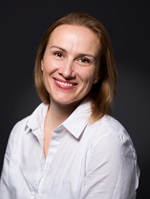Click here to stream the public defence
Due to copyright issues, an electronic copy of the thesis must be ordered from the faculty. For the faculty to have time to process the order, the order must be received by the faculty at the latest 2 days before the public defence. Orders received later than 2 days before the defence will not be processed. After the public defence, please address any inquiries regarding the thesis to the candidate.
Trial Lecture – time and place
See Trial Lecture.
Adjudication committee
- First opponent: Professor Mona Ringdal, University of Gothenburg, Sweden
- Second opponent: Professor II Asgjerd Litlere Moi, HVL - Western Norway University of Applied Sciences, Norway
- Third member and chair of the evaluation committee: Professor Eirik Helseth, Faculty of Medicine, University of Oslo
Chair of the Defence
Professor Pål Aksel Næss, University of Oslo
Principal Supervisor
Professor Hilde Wøien, University of Oslo
Summary
Social media (SoMe) is a user-friendly, and easy way of communicating through smartphones, and may be a novel way to communicate about local quality of care in busy intensive care units (ICU). The aim of this doctoral project was to describe SoMe use among ICU nurses and physicians, evaluate a multifaceted quality improvement campaign using closed Facebook groups, and explore ICU nurses’ and physicians’ experiences with SoMe in this context.
The first study revealed frequent use of SoMe among ICU personnel, especially nurses, females and those younger than 40 years. In the second study, the use of SoMe in a multifaceted intervention reached most ICU personnel and improved the documentation of pain, agitation/sedation and delirium. However, in the last study, personnel described in focus-group interviews an ambivalence towards the use of Facebook for this purpose. They were motivated by the professional content provided through Facebook, but when posts appeared unexpectedly on Facebook among other content in their free time, this was considered inappropriate and intrusive. They suggested that more applicable and appropriate hospital communication platforms are needed.
Additional information
Contact the research support staff.
